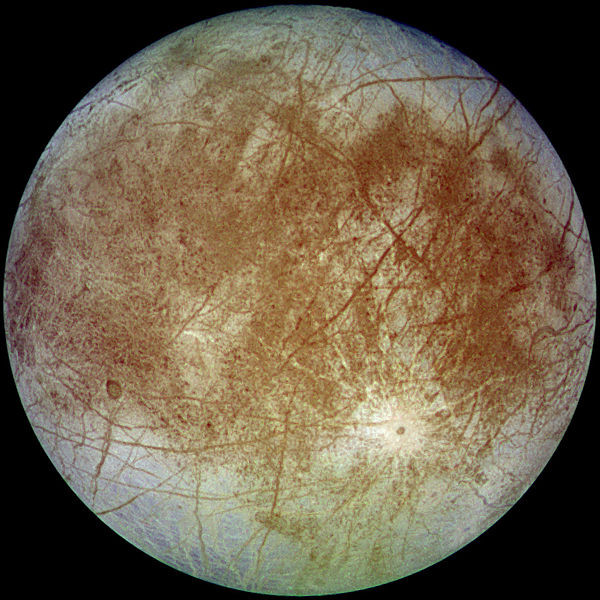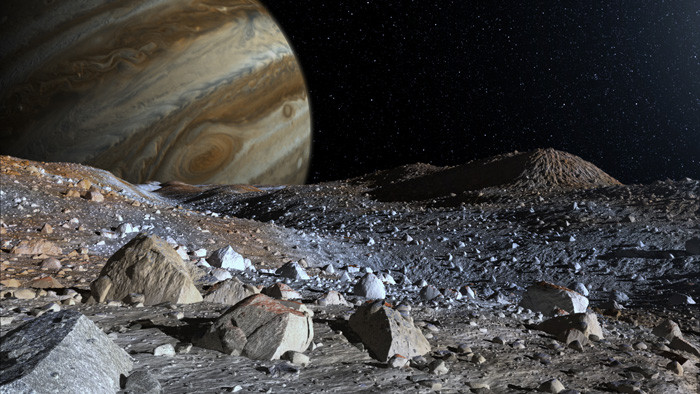Nasa to make mystery announcement about 'surprising activity' on Europa
Space agency to host conference on Monday 26 September to announce new findings from Jupiter's icy moon.

Nasa is set to make an announcement about "surprising activity" on Europa, Jupiter's icy moon. The space agency will host a teleconference on 26 September to present new findings garnered from images taken by the Hubble Space Telescope. The find relates to Europa's hypothesised subsurface ocean.
The statement from Nasa said:
NASA will host a teleconference at 2 p.m. EDT Monday, Sept. 26, to present new findings from images captured by the agency's Hubble Space Telescope of Jupiter's icy moon, Europa.
Astronomers will present results from a unique Europa observing campaign that resulted in surprising evidence of activity that may be related to the presence of a subsurface ocean on Europa.
Speaking at the event will be Paul Hertz, director of the Astrophysics Division, William Sparks, an astronomer with the Space Telescope Science Institute in Baltimore, Britney Schmidt, assistant professor at the School of Earth and Atmospheric Sciences at Georgia Institute of Technology in Atlanta and Jennifer Wiseman, senior Hubble project scientist at NASA's Goddard Space Flight Centre in Greenbelt, Maryland.
Europa's subsurface ocean

Scientists have long believed Europa has a liquid ocean beneath its icy exterior. It is thought to have a layer of salty water below a layer of ice that is 10 to 15 miles thick (15-20km). The ocean is liquid as a result of tidal heating – tidal forces make the moon flex and stretch, which creates heat. This makes Europa's interior warmer, allowing the liquid ocean to remain liquid instead of freezing through.
The subsurface ocean is of particular interest to scientists because of its potential to host life. Nasa is currently planning a mission to Europa, having recently commissioned a team of experts to decide its goals. In it they hope to look at the composition of the ocean, the thickness of its shell and its surface geology. While its primary goal would not be to look for alien life astrobiologist and deputy chief scientist for solar system exploration at Nasa's Jet Propulsion Laboratory said: "Europa's ocean, to the best of our knowledge, isn't that harsh of an environment."
Earlier this year, a team from JPL released a study suggesting Europa's ocean could be Earth-like in its balance of chemical energy, specifically the ratio of oxygen and hydrogen. This means it could be supportive of life. "Europa is special for the potential to have a high flux of oxidants to its ocean," the authors concluded. "We predict that Europa's large and persistent chemical fluxes of oxygen and hydrogen... could balance in a way that is unique among potentially habitable icy worlds in the solar system. For this reason, Europa may have favoured the origin and evolution of life."
© Copyright IBTimes 2025. All rights reserved.






















